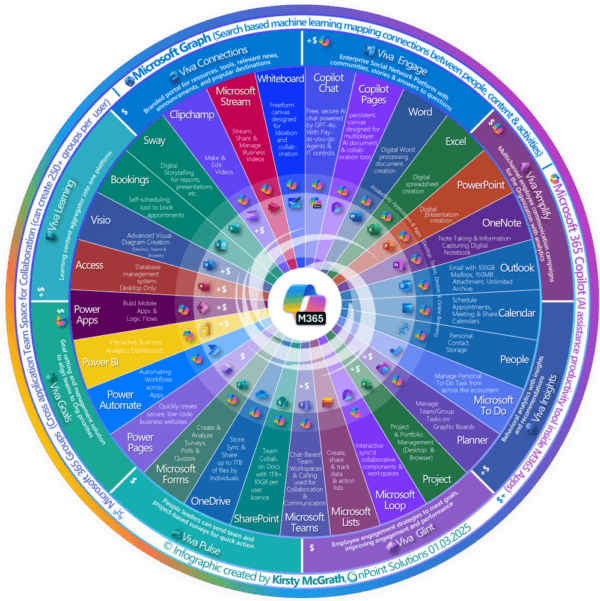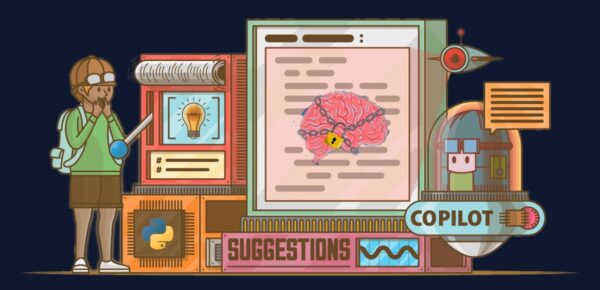
GitHub Copilot
Introduction:
In recent times, we’ve seen a big increase in tools that use AI, or smart computer programs, in many different areas. These tools help people do things like write computer code, create content, and come up with ideas and give suggestion. It can be seen every day-to-day life application like Gmail, LinkedIn and chat windows, Teams and many more. They use computer algorithms, which are like step-by-step instructions, to understand what we’re trying to do and help us do it faster.
One example of these tools is GitHub Copilot, which helps software developers write code by giving them suggestions based on what they’re working on. Another example is ChatGPT, which helps people write like they’re having a conversation with a real person.
These tools can be really helpful because they make tasks quicker and easier. But there’s also a downside if we use them too much. Relying too heavily on these tools might make us less creative and worse at solving problems on our own. We might get too used to the suggestions they give us and forget to think for ourselves.
To avoid this problem, it’s important for us to find a balance. We should use these AI-powered tools to help us, but we also need to keep thinking for ourselves and coming up with our own ideas. By doing that, we can get the benefits of these tools while still being creative and good at solving problems.
The Rise of GitHub Copilot:
GitHub Copilot is getting famous among programmers because of how it helps to write code and streamline programming work by optimizing time and minimize type errors. It uses machine learning trained on huge dataset of code so it can provide recommendations on what to type next in real time and this means it can finish lines or whole functions without the programmer having to actually type everything out themselves, so this speeds up coding a lot. Since it works right inside existing setups it’s easy to test.It helps where we get stuck trying to figure out syntax or calls.
Most of the time it analyzes our own framework and code and provide solution which are exist in our folder structure so that coder need not to travel in between pages in vs code while referring their own code so that we can focus on coding rather than where things are present.
those things are very helpful for newly joined employee or fresher who yet to understand folder structure and coding style. so that programmer can directly dive into new coding programming language that ultimately helps people to learn new skills.

As GitHub Copilot becomes more popular among developers, its clear benefits are making it a valuable tool for improving workflow and creating high-quality code efficiently. With more developers using GitHub Copilot, its role in changing how software is developed is becoming more obvious, showing the importance of coding in a faster and better way.
The Potential Pitfalls:

While praising the GitHub Copilot I want to write main drawbacks of depending too much on GitHub Copilot.
When I find myself depending more on this tool, I notice it can sometimes restrict my creative thinking and problem-solving skills. For example, if I constantly turn to GitHub Copilot for code solutions, I might become less inclined to brainstorm innovative ideas or tackle coding challenges independently. This over-reliance could limit my growth as a developer and hinder my ability to find unique solutions to complex problems.
one more example is before google & mobile we used to read books to find solution and while searching that solution in our brain that path was getting created by which means we reached to effective solution, so our brain was getting much power to solve problem by making new neurological connections by learning from paths which we not get solution or got one but once search engines came into picture our entire path finding task of brain given to that machine and that’s how our attention span became low. but it was not big problem till date because we had other ways to create or maintain our brain active by different hobbies like art drawing or even coding, we needed to search 10 different websites to find perfect solution.
After AI and suggestions tools our full dependency of our brain is leaning towards machines and our brain becomes less creative and less active day by day, we should use these tools but not to depend on it but to initiate learning.
it’s important to consider the limitations of the code generated by GitHub Copilot. While the tool is skilled at suggesting code snippets based on patterns in existing repositories, it may not always produce optimal or efficient solutions to specific project requirements. In complex scenarios , domains, the generated code may lack the understanding and context needed to deliver optimal results and restrict our brain to stick with provided results rather than thinking out of the box.
Solution:
To maintain a balance, I approach the use of GitHub Copilot with mindfulness and caution. Instead of depending mainly on the tool for code solutions, I utilize its suggestions with independent problem-solving and creative thinking. By actively engaging in brainstorming sessions, code reviews, and collaborative discussions and while developing we can also check if there are any other way to find same results with different approach.
I am happy to share my personal experiences with GitHub Copilot. As a developer, I’ve found this tool very helpful in speeding up my coding process and increasing my productivity recently. There have been many occasions where GitHub Copilot has provided me with accurate and relevant code suggestions, saving me valuable time and effort.
I also come to realize the importance of maintaining a balance between efficiency and creativity when using GitHub Copilot. it essential not to dependent on it too heavily. I’ve learned that maintaining my creative independence is crucial for growth and innovation and finding unique solutions to coding challenges.
While using GitHub Copilot we can also look into our traditional Stack Overflow and official website of respective coding problem / language to find solution it will help our brain to not to restrict thinking and ultimately it will increase our thinking capabilities and we can learn more about surrounding technologies which leads to find solution and not just find solution. Human brain may not provide quick solution even if has more computational power we can take help from our collogues and teammate and manager.
Conclusion:
GitHub Copilot helps with writing code but may make us less creative. It’s important to think about how we use it and not rely on it too much. We should try to balance working fast with coming up with our own ideas. Readers should think about how they use GitHub Copilot and try to be more creative in their coding.
References:
GitHub Copilot: Fly With Python at the Speed of Thought – Real Python
cover.jpg (1200×627) (kolide.com)
https://www.linkedin.com/safety/go?url=https%3A%2F%2Frealpython.com%2Fgithub-copilot-python%2F&trk=flagship-messaging-web&messageThreadUrn=urn%3Ali%3AmessagingThread%3A2-YjU0MzVmZTgtYWYzOC00YTM0LWJmM2QtYzhiMmFjMWY4N2E1XzAxMg%3D%3D&lipi=urn%3Ali%3Apage%3Ad_flagship3_profile_view_base%3BTKPggndZSsSSBdXo80tM5g%3D%3D
#GitHubCopilot #CodingEfficiency #CreativeThinking #SoftwareDevelopment #BalancingAct #CriticalEvaluation #FosteringCreativity #ProgrammingSkills #CodeGeneration #TechInnovation
This is part of copilot week… link to copilot landing page

Shivraj Pattanshetti
Being enthusiastic software developer I believe in producing good quality product with proper collaboration. I always think from end use perspective while development that’s helps me to debug problem very quickly and to the point.
It doesn’t matter for me in what technology I am working that’s why I would love to adapt new technologies and work on them and journey is still going on to learn new technologies.
Reference:
Pattanshetti, S. (2024) The Balance Between Efficiency and Creativity: Exploring the Impact of GitHub Copilot Dependence. Available at: The Balance Between Efficiency and Creativity: Exploring the Impact of GitHub Copilot Dependence | LinkedIn [Accessed on 23/04/2024]










